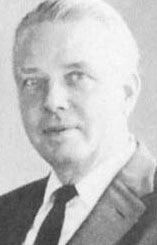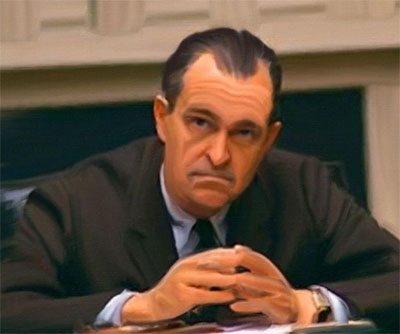
Gentle Readers,
In view of the controversy regarding the unmasking of American names caught up in “incidental collection” and the parallel accusation that some Americans were inappropriately in contact with agents of the Kremlin, I thought it might be fun to take a look a the way the national security state came to be, masks or no masks. When I heard last night that we had lobbed 59 Tomahawk Land attack Missiles into Syria, I was initially impressed by the numbers. Watching the coverage from Russian TV (I am sure that it going to get me stripped of my mask) it doesn’t look like much was done. I wish I still had access to the post-strike imagery to make up my own mind. I poked around looking for some notes about the transition from Mac Shower’s active Navy Service to working for the Christians in Action up at Langley. There might be something that resonates yet in Mac’s words to me in that splendid dark bar with the wonderful wood paneling and the nicest bunch of bar-tenders and bar-flies you could ever hope to meet…
I was still dressing up for the office in those days. I think it was late spring- possibly warm enough for the seersucker suit that serves to keep me temperate through the atrocious soggy Washington season.
Owner Tracy O’Grady came out to press the flesh with the usual suspects before the kitchen got busy with the dinner trade. She worked the Amen Corner there by the front window for a while as Old Jim showed her his latest flight of blank verse from the notebook he kept in his corduroy jacket. Jim is still quite the poet. My pen was still poised. “Ok, Sir, you retired in 1971?”

(Broson Tweedy).
“Yes. Novermber of 1971. Bronson Tweedy called me and asked if I could meet him for lunch at the Georgetown Club, which I agreed to do. He liked that place- very traditional Washington institution. At lunch he said, “In view of the Schlesinger study making these demands on what the newly established Director of Central Intelligence is supposed to do, the DCI has decided reluctantly that he will have to expand his budget staff to carry out more coordination of the intelligence community. And among other things we’d like you to come and and work for us.” I asked him at that point if he wanted me to come in uniform or if he wanted me to come as a civilian. He said, “We want you as a civilian.”
“When was that, Admiral?”
“This was probably the first week of November. He said, “We’d like to have you on board by the first of December.” I told him that I doubted that I could get “unhooked” from the Navy that quickly, but I would try. After a pleasant lunch, I returned to the Pentagon and made inquiries, and the first thing I was confronted with was that General Bennett, the Director of DIA, was away on a trip. I was told that there was no way that I could send my request for retirement without his endorsement and agreement, which was obvious. So, it being readily apparent that I couldn’t carry get on the retired list by the first of December, the earliest I would be able to do it would be the first of January the following year. That was agreed to, and that’s what happened. As soon as General Bennett returned from his trip, I had my letter on his desk requesting retirement. He endorsed it, I went through the necessary procedures, and I was retired as of the 31st of December 1971 and went on the retired list on the 1st of January 1972.”
“I was still worried about the Draft then,” I said with a sigh. “I was dodging the draft and hoping I wouldn’t get nailed as soon as I graduated. Did you have any regrets about going to the CIA after all those years in Naval Intelligence?”
“No. It was a good offer. I don’t remember the pay scale at the time, but Bronson Tweedy’s offer to me was that, “We will take you on as a contract employee. We’ll give you a one-year contract renewable. And we will pay you the equivalent of a GS-16 salary,”
“That would be a General Schedule employee equivalent to a Rear Admiral, right?”
“Yes. The concept of the Senior Executive Service did not exist then. Compensation was about the same as what I was making from the Navy. I knew that I would have to forego part of my retired pay. I think the formula at the time was that I’d have to lose half of my retired Navy pay while I was in government employ and have that restored to the full annuity upon leaving government service. But I would concurrently be getting a full civil service salary or salary from the DCI, which would really give me a pay-and-a-half and make me a real true “double dipper,” a status for which I was accused of many times.”
“It always seems to irritate some people around here when somebody in the military finally gets a decent salary. With full military retirement and a job, you can actually afford to live in DC. At least you did not have to go into bid-and-proposal work with the rest of us Beltway Bandits.”
“I am thankful for that,” he said, taking a nibble of the celery stalk in his Virgin Mary. “New Year’s Day of that year fell on a Sunday, so we had Monday off to observe the holiday. I believe I retired on a Friday, and went to work at CIA headquarters on Tuesday. I know I had a three-day break between careers — time to have a New Year’s party and recover from it.”
“That only means you were not trying hard enough,” I said with a snort. “You told me about the party the senior officers had at Joe Rochefort’s house during the War after the word came back that Station HYPO had been right, and the Japanese were shattered at the Battle of Midway.”
Mac nodded solemnly. “We did not see some of them for a few days. But this was no war and we were all a little older. When I arrived at the DCI headquarters, I first went into a group that was headed by J.J. Hitchcock, who was one of my previous friends in naval service. I had first met J.J. at the Naval Security Station back in ’47-48 when he was doing some research work on indications and warning. J.J. had become the indications and warning expert for the DCI over the years. He was instrumental in setting up the Watch Committee and doing the Weekly Review of worldwide Indicators and he issued the weekly Watch Report that was a major instrument of power in the government during those years. By then, though, J.J. wasn’t doing that kind of work any longer. He was simply doing staff work.”
“The bane of the the Sixth Floor of the Original Headquarters Building,” I sighed.
“There was no new building to confuse the issue then, and besides, were were still downtown in the building on F Street near the White House. J.J. had the people on the budget staff- the NIPE- who were going out to the DIA and the other agencies and looking over their shoulders, as I said, at their budgets and their programs. It was at that point that I first became acquainted with Major General Jack Thomas, USAF, who was also in the same office, having retired from the Air Force a year or so earlier and gone into similar employ.”
“This is eerily similar to the Community Management Staff where we all worked for Joan Dempsey, and the General was still there. He was moving pretty slowly, though.”
“I am not surprised. So, Jack and I were both ensconced there working for J.J., and we soon became enmeshed with a gentleman by the name of John Clarke, who had been the Comptroller of CIA for many years and now was moved over to the NIPE staff to manage the program and budget development and comptrollership, if you will, for the while intelligence community because one of the specific recommendations in the Schlesinger Report was that the DCI, should, in fact, become responsible for the consolidation of the program and budget of all of the elements of the intelligence community, not just looking over the shoulder in review but, in fact, becoming a participant in the development and in the weighing and in the trade-offs, and so forth, in order to avoid the duplication and trim the fat, etc., et c.”
“Yep. We were always going to save a whole bunch of money through enhanced efficiency, but it never seemed to work that way.”
“So about the same time I arrived on the now-expanding NIPE staff, John Clarke arrived from Comptrollership of CIA to do a similar job for the intelligence community.”
“It sounds as though Helms took this very seriously, whether his cooperation was reluctantly given. and he really did try to carry out the recommendation from Schlesinger.

(Director of Central Intelligence Richard Helms).
“Yes, he did, except it was still reluctant. I heard Dick Helms say on one occasion, when we were confronting him with some of the problems we encountered early on, “Look, I didn’t ask for this responsibility. I don’t want this responsibility. It is being forced on me, and I’m going to do my best, but I want you gentlemen to do it. Please don’t bother me with your little problems. I’m bringing you in and putting you together to do what I was told to do, and I want you do do it in my name.” And he really wanted to hold himself above it. That’s why I say he did it reluctantly. And he really did, but nevertheless, he was supportive and helpful to the extent that he could be. But his interest lay with the Central Intelligence Agency more than with the other elements of the intelligence community.”
“Doesn’t seem to have changed much,” I said. “The more things change….”
Copyright 2017 Vic Socotra
www.vicsocotra.com
